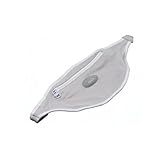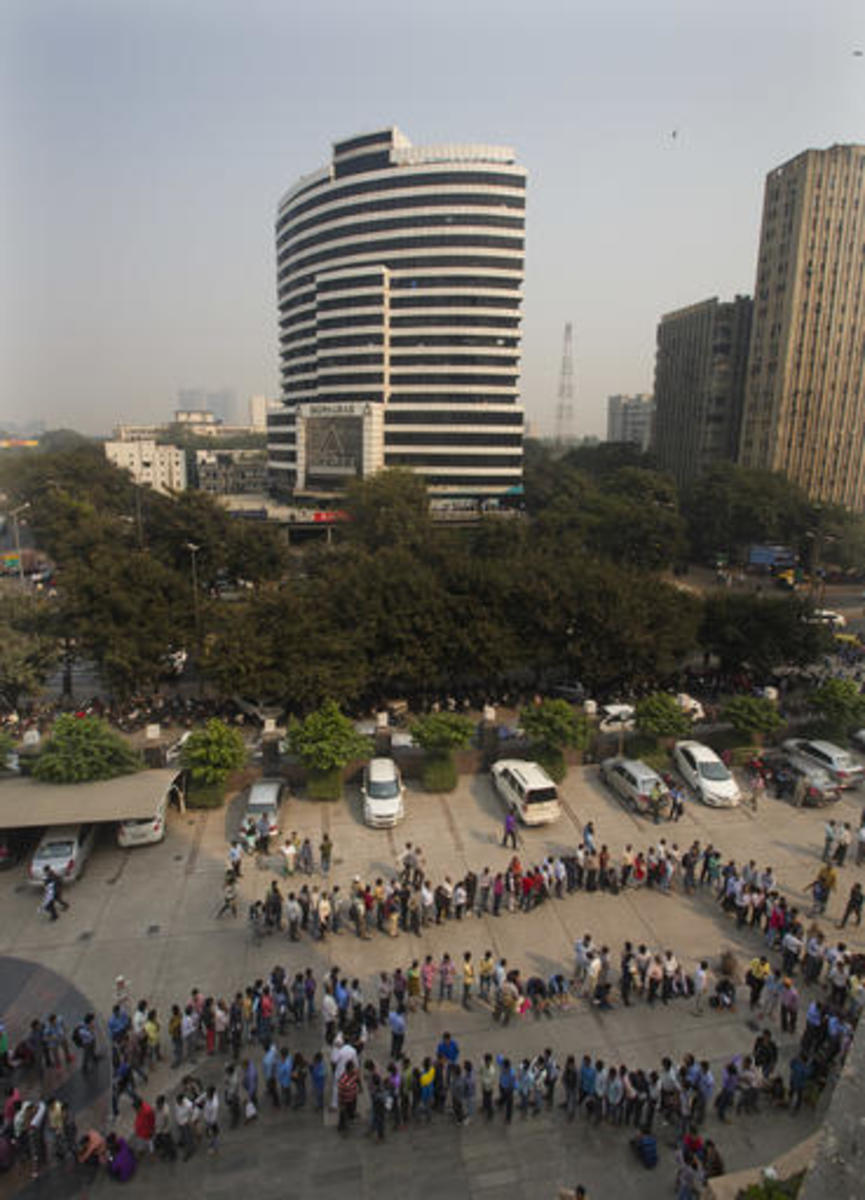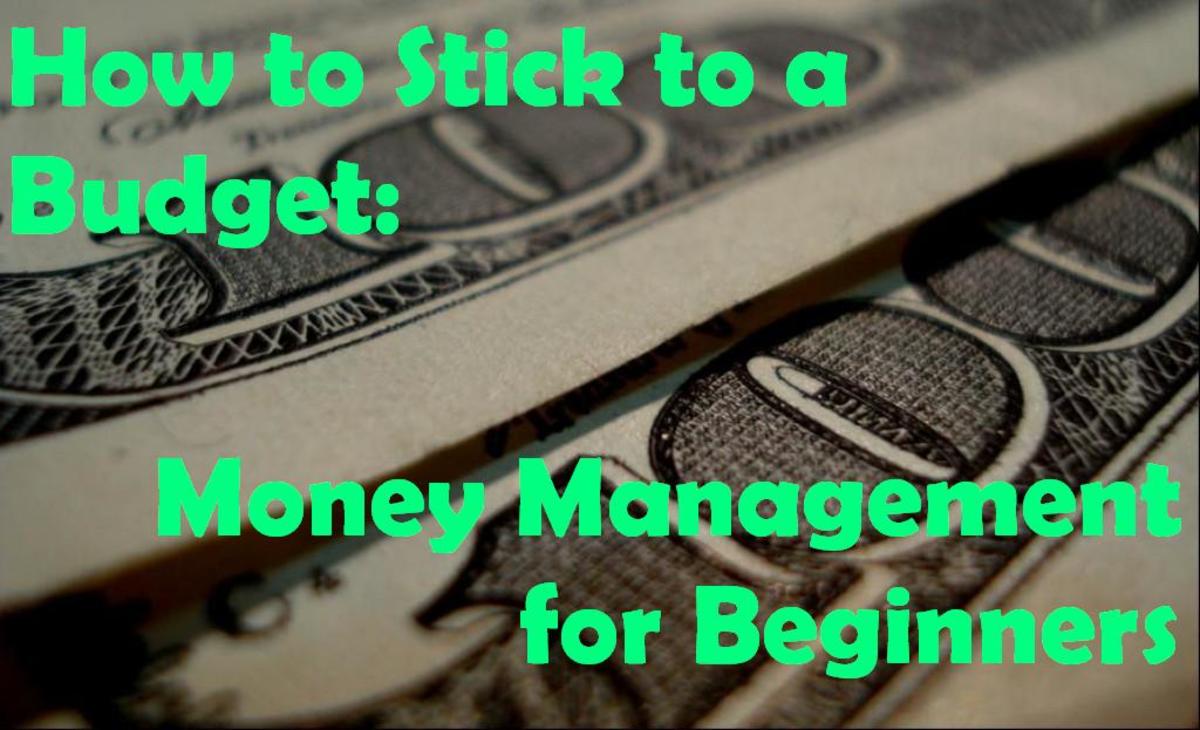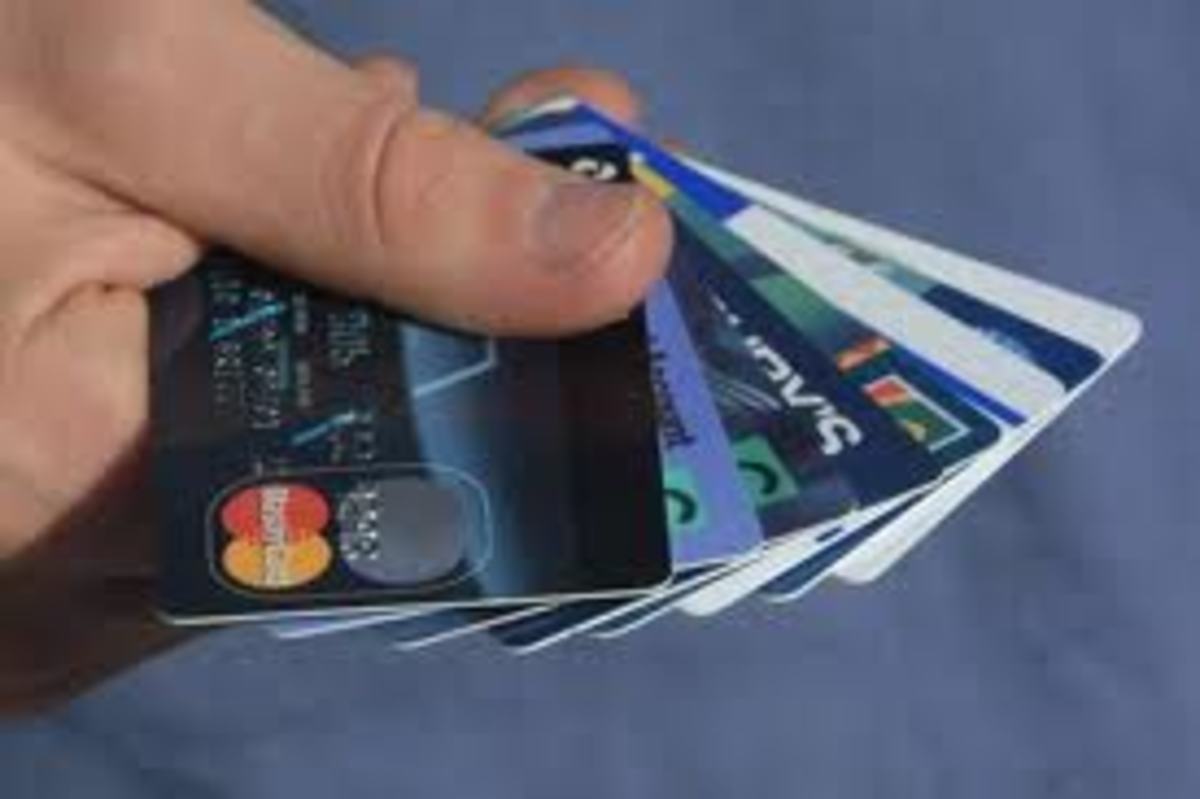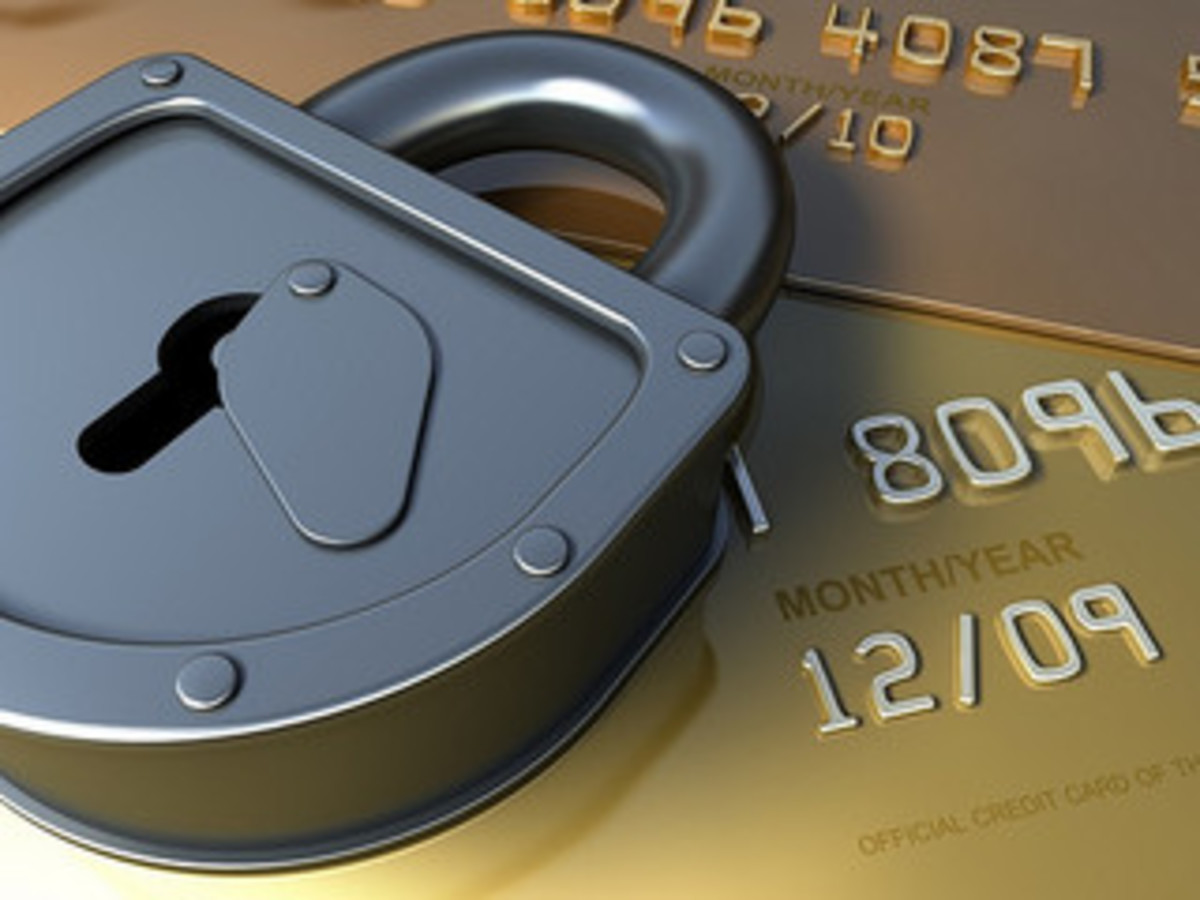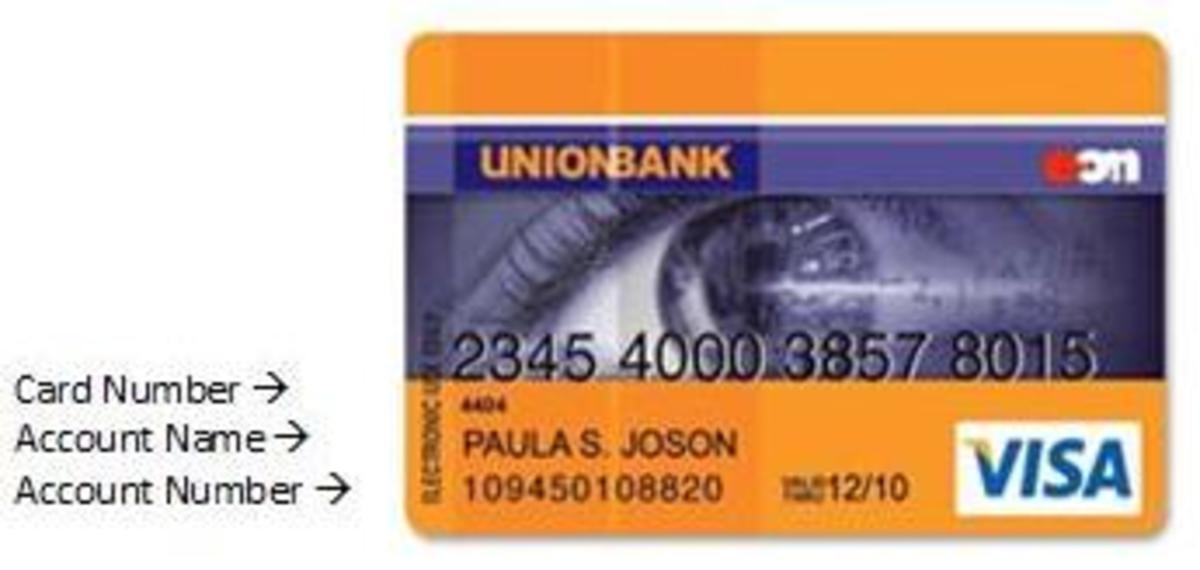Managing your Travel Money
Managing your Travel Money
So you have saved for months and months and are now off on your trip of a life time, or even just the 4 week vacation in Europe that you've been dreaming of. You've saved your money, you've bought your air tickets. You are in count-down mode. You have $10,000's of dollars to fund your trip - but how to you carry it? Your mother took all hers in Travelers Checks in 1975 - is that what you should do? Well sorry mom - probably not!
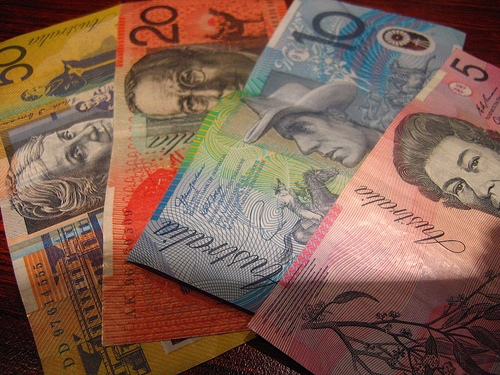
Online Banking
- Traditional v. Online Banking
I often see commercials for financial institutions advertising their high yielding checking, savings, or money market accounts. On my last trip to the bank, I checked the interest rates, and found they...
Here are some hints and tips for making sure your hard-earned cash is spent by you and only you!
Set-up Online Banking Before you leave.
If you are already using online banking then it is easy to confirm that your spending limits are appropriate, that the security protocols will still work for you - not much point having the transaction security code sent to a mobile phone you are not taking with you! If you don't currently use on-line banking get is setup ASAP! Make sure it is up and working and you are familiar with how to use it before you leave home!
When using on-line banking in Internet Cafes make sure that you always logout of the online session when you finish. For added security use a small digital device which displays a random number which you have to enter before performing transactions that take cash from my account: even if computer has spyware and records a password - they don't have the digital display so they can't do anything bad!
What form to take your Money in
Below in my personal experience is the REVERSE order that I like to carry money in.
Travellers Cheques (or Travelers Checks if you prefer):
Unfortunately they have rather had their day. Around long before plastic: cards, money ATMs, back in the dark days of the 1980's they were your only option apart from cash or banker's drafts! They are replaceable if lost or stolen, you have to keep a record of the numbers separate from the checks. The problem increasingly is to find somewhere to cash them. Increasingly banks will insist of seeing the original purchase receipt - but that you should never travel with! In the good old days you could set aside ½ a day to cash travellers checks - and nothing seems to have changed in that regard.
Also remember that only the person who signed them originally can counter-sign them when you cash them - so couples -sign ½ each!
Typical Costs: 1% on purchase, and 1-5% on cashing. Also of course you get no interest on your funds once you buy the Travellers Cheques.
- Visa TravelMoney | Personal | Visa USA
Visa TravelMoney is the easy, smart, and secure alternative to travelers cheques and cash.
Pre-Paid Debit Cards
That is cards such as Visa's TravelMoney. Potentially a great idea: basically a pre-paid card but there is one big problem: FEES. They are a very expensive way to carry money. They are a badged debit card, Visa or MasterCard, which you load a credit balance onto i.e. you are using your own money. You can then use the card as a normal credit card to make purchases or to get cash. As the balance is in credit you do not pay cash advance fees. You get a second card for "free".
You have the normal credit card protection - see below.
However the cost break down goes something like this;
- Cost to withdraw cash: 5 x $200 cash withdrawals: 1% to load card, $3.75/withdrawal, currency conversion fees from 5.95% to 2% Costs $49 - $88
- Cost to make $2500 of credit card purchase: 1% to load card plus conversion fees of 2% - 5.95%. Cost $75 - $170.
Total cost to use $3500 of YOUR OWN MONEY: $124 to $258 Cost to use $35,000 of YOUR OWN MONEY $1,250 and $2,580 that's 3.5% to 7.4% loss in fees. Now that is scary! Fortunately there are better options
ATM Cards
If you plan to take your cash card overseas, turn it over and check that it has one or more of the following logos: Cirrus, Plus or Maestro.
However you are much better off using a Credit or Debit card as cashcards don't have the same excellent protection if you card is stolen or used fraudulently. Your maximum liability is $50, zero if you report the fraud as soon as you become aware of it.
Check your fees too - you are likely to paying $4 plus per a withdrawal fees plus 2.5% cash conversion rate.
Low Cost Credit Cards
- Free Credit Card for Australians
Wizard credit cards Australia. Wizard Clear Advantage MasterCard - 4.99% balance transfer for six months, no annual fee, low ongoing rate. - BankDirect - New Zealand
Low Cost Visa card gives free cash withdrawals if you use the card as Debit Card and pays you interest!
Credit/Debit Cards.
Truly one of the best modern inventions out! These are the cards branded with VISA or MasterCard in the most part. Using your credit card to guarantee car rentals and hotel stays is almost compulsory in some parts of the world, particularly North America. You need one to make on-line purchases for such items as flights and hotels.
Here are some tips for using your credit/debit card overseas:
- inform your bank that you will be traveling - they may cancel your card if you normally spend $150/week in restaurants and shops in New York and suddenly you start spending $1000/week in South America!
- make sure your credit card address is updated - if your statements get returned from you address your card will get cancelled.
- make sure you can access your statements on-line in order to keep track of your spending
- raise your credit limit if you need to: this is easier to do prior to quitting your job to go travelling!
- set-up Internet banking to pay your credit card automatically on the due date from your savings - you do not want to be paying credit card interest costs
Also don't take just one card: you need at least 2 cards one for credit card purchases and one for cash advances. If you have a debit card you can combine the two but you still need two cards: preferably one Visa one Mastercard and definitely from different financial institutions. So if one is lost/stolen/used fraudulently you can still access your money! Remember if you have an additional card on the same account this will be frozen along with the main card if anything goes wrong.
Cheap Credit Card: (e.g. Wizard MasterCard)
- Cost to withdraw cash: $0
- Cost to make credit card purchase: $0
Cost to use $3500 of your own money: $0
Cost to use $35,000 of your own money $0 -that one works for me!
Standard Credit Card
Cost to withdraw cash or card purchase: 2.5% currency conversion fee
Cost to use $3500 of YOUR OWN MONEY: $87.50
Cost to use $35,000 of YOUR OWN MONEY $870.
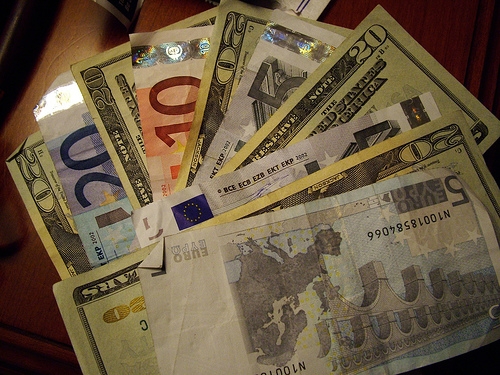
Cash
Yes I still prefer to travel with a significant amount of cash. I usually carry the equivalent of approximately US$5,000 cash. No I hardly ever take my own currency. Even places where I can get an exchange for New Zealand or Australian dollars it will usually be very poor compared to major currencies. I generally carry US$ cash, but for Europe I would Euros and the UK I would carry Stirling. Unfortunately every time you change currencies you loose on the exchange rate. If you are lucky enough to earn money in any of these three major currencies then carry your home currency and then only change it once to your destination's currency.
If you are going to not yet developed countries you need to be fussy on what notes you carry: they need to be clean no rips, no writing on them and no holes in them. Yes you will get raised eyebrows at your local bank as you go through the notes one at a time and reject about 10% of them - but believe me its worth it. In most third world countries the local currency is so dirty that you can hardly read them or see the original colour, but the same trader who will happily give and receive these money health hazards, will absolutely refuse to take a $50 dollar bill with a rip or a pen mark. Trust me I have had the arguments and lost - it's lot less inconvenient to have the argument at your local branch in your native language!
- Online Currency Conversion Websites
When you're trying to figure out how much the American dollar (USD) is to the Euro(Eur), you may or may not be able to convert the different in your head. This is where a currency converter is...
Bills to Take
I carry at 70% of my cash in $100's, about $200 in $20's and the rest in $50's . Why $20's - they are useful for bribes, last minute exchanges when you are about to leave the country. Also some countries have currencies where inflation has rendered the highest local note worth about $1 - this can a little inconvenient as this tourist shows! The $100's usually get the best exchange rate but sometimes there is a run of counterfeiting of $100's so some places weren't take $100's, so that's why I take $50's.
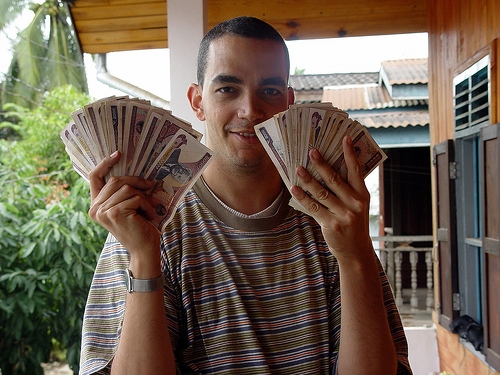
Wearing Cash and Cards when you Travel
If you carry $5000 in the bills I suggested above you end up with 35 $100's, 26 $50's, and 10 $20's a total of 66 notes. In addition you need to protect your plastic cards, passport, international health card, driver's licence. If you have old-fashioned paper airline tickets you need to look after those too.
When I travel these items very rarely leave me. I sleep with them under a pillow I wear them the rest of the time. If I am travelling solo they come to shower with me - even if the room is ensuite. It may sound paranoid but I have never lost significant amounts of cash. I had a wallet pick-pocketed once - but it only had $20 of local currency. That was no accident - when I travel the wallet is pretty much for show: here it is steal it if you want to. I carry basically the cash I need for the day or the cash I am going to change that day. That way no-one ever sees where most of cash is, or how much I have.
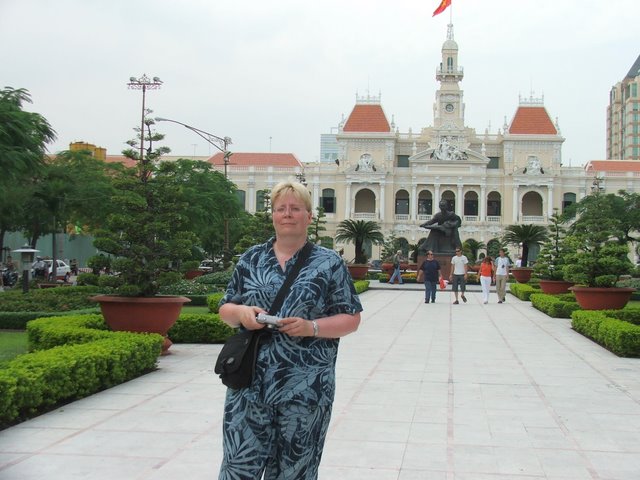
You'd get a guide book and maybe my camera and wallet containing about $20.
Avoiding theft really is quite simple even when you are travelling solo: you just have to be cleverer than the average tourist and here are some real life things I have seen more than once:
- everything in the money belt - has to pay $1 for a drink on the street- reveals the pile of $100's in his belt money
- belt too uncomfortable to wear because the weather's hot - put it in your daypack - hang the backpack off 1 shoulder or over the back of a chair in an outdoor cafe
- money belt rubs skin - wear outside T-shirt, around your waist.
- changing $100 worth of local currency and then trying to fit all the local currency back into the money belt - all the time standing in the middle of a crowded bank with 10's of locals watching
How to divide your valuables
So yes I am saying you should find a money belt and wear it all the time, so it has to be comfortable.
I also need a wallet for the day's spending.
Plus also, especially when I travel solo I have another $100 hidden somewhere else just in case disaster strikes. The $100 has over the years been hidden in the sole of a shoe, inside an inner lower pocket in my backpack, in my diary's cover. Now I often use one of the literal money belts you can see to the right. The leather type suits men who wear trousers with belt loops. I normally use the more casual woven type. I don't actually always wear it - sometimes the belt is in my backpack - I feel comfortable though that it would be a pretty thorough thief who found it!
Money Belts - Traditional
The key to the buying the best money belt is getting one that is comfortable for you. The traditional around the waist is next to useless: its hot to wear, its uncomfortable as most passports resist bending when you sit, if you wear it high enough to allow you to sit comfortably - its surprisingly easy to pickpocket - I saw it happen on a Bolivian bus where the pickpocket took the cash only, and the belt was zipped shut under a tucked in T-shirt and another shirt over the top.
The leg wallet seems like a good option for cash but probably not so good for passports and other bulky items.
I have also tried the neck wallet but these are rarely invisible - they are uncomfortable for even my fairly flat-chested figure. The weight of the wallet hurts my neck and rubs. You can see the outline of the wallet if you are wearing anything less voluminous than a burka!
The shoulder holster wallet I have been using for over 10 years and it is wonderful. It's impossible to see when you wear even with a singlet top so long as it has broad shoulder straps. The wallet hangs so you can wear a passport in it for 6 months and it will still get you through British security. Its not close to your body so it's not particularly uncomfortable in hot climates. It's big enough to carry all the cash, cards, passports and tickets that you could possibly have.
Hidden Pockets
You can buy separate pockets which loop onto a belt- meaning that if you are wearing a belt you can always wear the pocket - good for guys.
I normally either buy travel clothing with concealed pockets or sew my own inside pockets into existing clothes - particularly skirts. I prefer to not wear too much specific travel clothing- it makes you look like a rich tourist!
The Author
Lis Sowerbutts has been traveling since age 7, and has to date visited over 55 countries. She firmly believes that traveling starts at 30 and is too good to be left to the young.

